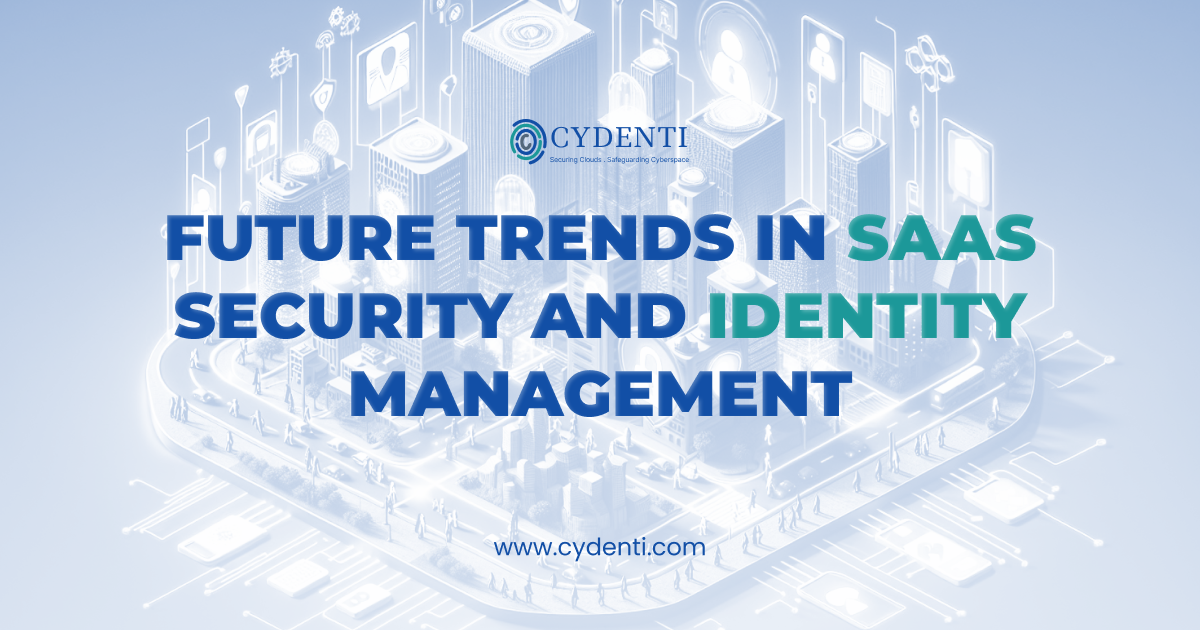As organizations continue to embrace Software as a Service (SaaS) applications, the landscape of SaaS security and identity management is evolving rapidly. Staying ahead of these trends is essential for maintaining robust security and ensuring seamless user experiences. Here are some key future trends to watch in SaaS security and identity management:
1. Zero Trust Security Model 🔐
The Zero Trust model, which assumes that threats can come from both inside and outside the network, is gaining traction. This approach involves continuously verifying every request as though it originates from an open network.
- Adoption: More organizations will adopt Zero Trust principles, leveraging identity and access management (IAM) solutions to enforce strict access controls.
- Implementation: Continuous monitoring and verification, micro-segmentation, and adaptive authentication will become standard practices.
2. AI and Machine Learning for Threat Detection 🤖
Artificial Intelligence (AI) and Machine Learning (ML) are transforming threat detection and response by enabling more accurate and faster identification of anomalies and potential threats.
- Enhanced Security: AI-driven tools will provide predictive analytics, automate responses, and enhance the detection of sophisticated threats.
- User Behavior Analytics (UBA): ML algorithms will analyze user behavior patterns to identify unusual activities and potential insider threats.
3. Increased Focus on Identity Governance and Administration (IGA) 🛡️
Identity Governance and Administration (IGA) will play a critical role in managing user identities and ensuring compliance with regulations.
- Compliance: Enhanced IGA solutions will help organizations meet regulatory requirements, such as GDPR and CCPA, by providing robust identity lifecycle management and audit capabilities.
- Automation: Automation of identity management processes, including user provisioning, access reviews, and compliance reporting, will become more prevalent.
4. Decentralized Identity (DID) Solutions 🌐
Decentralized Identity solutions are emerging as a way to give users control over their digital identities, reducing reliance on centralized identity providers.
- User Control: Users will own and manage their identity information, which different service providers can verify without relying on a central authority.
- Security: DID solutions will enhance privacy and security by minimizing the risk of centralized data breaches.
5. Integration of Identity and Access Management (IAM) with DevOps 🚀
Integrating IAM with DevOps practices will become more common, ensuring that security is embedded throughout the software development lifecycle.
- Secure DevOps: IAM tools will integrate with CI/CD pipelines to enforce security policies and manage access controls for development environments.
- Role-based Access: Role-based access controls will be dynamically applied to ensure that only authorized personnel have access to critical systems and data during the development process.
6. Identity as a Service (IDaaS) Expansion 🌩️
Identity as a Service (IDaaS) solutions, which offer cloud-based identity management, will continue to grow in popularity.
- Scalability: IDaaS will provide scalable identity management solutions that can adapt to the growing needs of organizations.
- Cost Efficiency: Organizations will benefit from reduced costs and complexity by leveraging IDaaS for identity management needs.
7. Stronger Authentication Mechanisms 🔑
The future of authentication lies in moving beyond traditional passwords to more secure and user-friendly methods.
- Biometrics: The use of biometric authentication, such as facial recognition and fingerprint scanning, will increase.
- Passwordless Authentication: Solutions like FIDO2 standards will enable passwordless authentication, enhancing both security and user experience.
8. Enhanced API Security 📡
As SaaS applications rely heavily on APIs, securing these interfaces will become a top priority.
- API Gateways: Organizations will use API gateways to enforce security policies, monitor traffic, and detect anomalies.
- Tokenization: Token-based authentication and OAuth protocols will be widely adopted to secure API interactions.
Conclusion
The future of SaaS security and identity management is marked by innovation and a shift towards more comprehensive and user-centric approaches. Organizations can stay ahead of the evolving threat landscape by adopting Zero Trust principles, leveraging AI and ML, focusing on identity governance, embracing decentralized identity solutions, integrating IAM with DevOps, expanding IDaaS, implementing stronger authentication mechanisms, and enhancing API security.
Cydenti is at the forefront of these trends, providing cutting-edge solutions to secure your SaaS applications and manage identities effectively. Contact us to learn more about how we can help you navigate the future of SaaS security and identity management.
CommentShare
